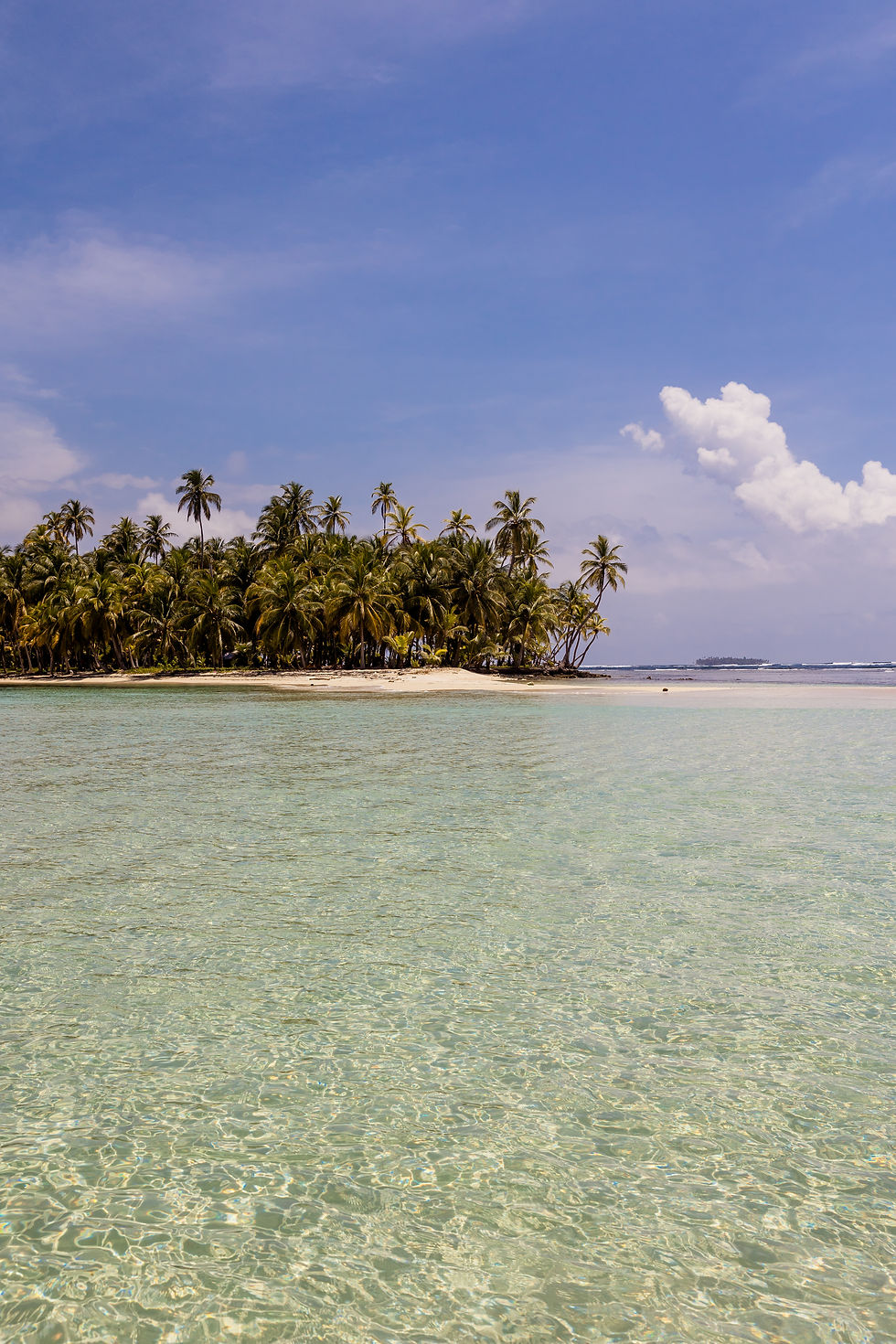Protecting Coral Reefs in Guna Yala: A Sacred Responsibility
- Ana Karina Marin
- May 27, 2025
- 2 min read
The Guna Yala region is home to some of the most pristine coral reefs in Central America. For the Guna people, these ecosystems are not only sources of biodiversity and livelihood—they are sacred. In a time of growing environmental threats, Guna Yala stands as a powerful example of how traditional knowledge and community action can help protect one of the planet’s most vital natural systems.

Often described as the "rainforests of the sea," coral reefs play an essential role in marine life and human survival. They provide habitat for thousands of fish and marine species, protect coastlines from erosion and storm surges, support sustainable fisheries, and offer opportunities for eco-tourism.
In Guna Yala, these reefs are particularly vital. Local communities depend on them for food, cultural traditions, and a deep spiritual connection to the sea. The coral reefs are not just ecosystems—they are living relatives that embody the balance between humans and nature.
Despite their importance, coral reefs across the globe, including those in Guna Yala, face increasing pressures:
Climate Change: Rising sea temperatures are leading to coral bleaching, weakening reef structures and threatening the species that depend on them.
Pollution: Wastewater, plastic, and
chemical runoff from upstream communities enter the ocean and poison reef environments.
Overfishing: Unsustainable fishing practices disrupt the delicate balance of reef ecosystems.
Unregulated Tourism: Anchors, careless snorkeling, and non-biodegradable sunscreen contribute to coral damage.

These threats have only intensified in recent years, prompting urgent action from both Indigenous leaders and environmental organizations.
The Guna people have long viewed nature through a spiritual lens. According to their cosmovision, the Earth and sea are living beings, and humans are caretakers rather than owners. Coral reefs, in this worldview, are sacred. They represent harmony, resilience, and the interconnectedness of life.
This belief is more than symbolic—it shapes behavior. Many Guna communities enforce their own rules to protect the reefs, such as restricting harmful fishing methods and controlling where boats and tourists can go. These efforts are not seen as regulations but as acts of respect.
Guna Yala is increasingly recognized as a model for community-led conservation. Local initiatives often involve partnerships with marine biologists, environmental NGOs, and government agencies.
These collaborations support:
Education Programs: Schools in the region now include environmental education with a focus on marine ecosystems and traditional values.
Sustainable Tourism: Some villages promote low-impact tourism with trained local guides, designated snorkeling areas, and bans on harmful products.
These efforts demonstrate how Indigenous knowledge and modern science can work hand in hand.

The protection of coral reefs in Guna Yala is not just a local issue—it is a global one. As climate change and environmental degradation continue, the survival of these ecosystems will require collective effort. For visitors, scientists, and policymakers alike, Guna Yala offers an important lesson: conservation is most effective when it respects the people who have long lived in balance with the land and sea.

Here are some tips to support coral reef protection:
Use reef-safe sunscreens
Minimize single-use plastics
Respect local customs and marine rules
Support Indigenous-led conservation efforts
As the Guna say, the ocean is not just water—it is life. And to protect the coral is to protect ourselves.





Comments